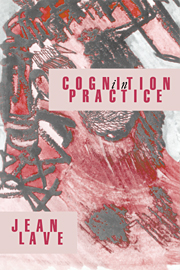Preface
Published online by Cambridge University Press: 02 December 2009
Summary
It seems impossible to analyze education – in schooling, craft apprenticeship, or any other form – without considering its relations with the world for which it ostensibly prepares people. But further, these relations cannot be addressed within the social sciences today without reexamining the role of cognitive theory in explaining the effect of education on everyday activity. This book begins with a general question about the connections between cognitive theory, educational forms, and everyday practice – specifically, the manner in which their complex interactions have shaped the historical and cultural character of each. In order to consider this question, orthodox explanations of cognitive processes, and the assumptions underlying them, are explored anew. This excursion, which will lead us through diverse empirical investigations, ends with suggestions that transform our conceptions of culture, cognition, and activity in the lived-in world.
I have pursued these general issues in several contexts over the years, beginning with a study of the learning and use of math among Vai and Gola apprentice tailors in Liberia (1973–78). At that time, differences between schooling and other instructional forms were couched in terms of “formal” and “informal” education. Apprenticeship was assumed to exemplify concrete, situation-specific learning. Yet experiments designed to explore the transfer of arithmetic knowledge from apprenticeship and schooling to unfamiliar problems showed that the effect was trivial. A later study by Mary Brenner (1985) also called into question the common belief that schooling is a font of transferable abilities.
Information
- Type
- Chapter
- Information
- Cognition in PracticeMind, Mathematics and Culture in Everyday Life, pp. xiii - xviPublisher: Cambridge University PressPrint publication year: 1988
